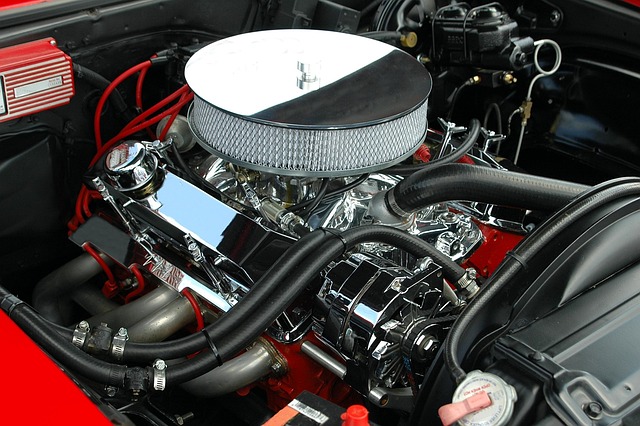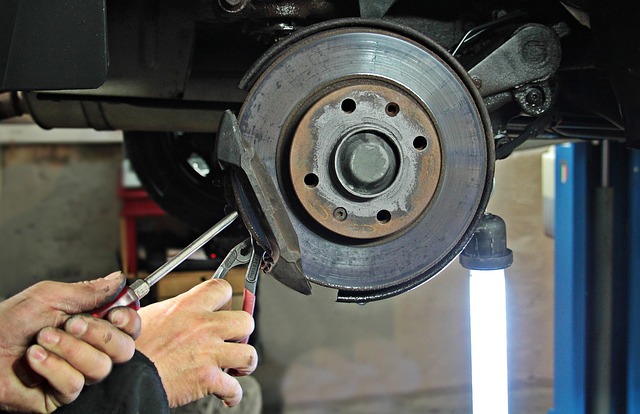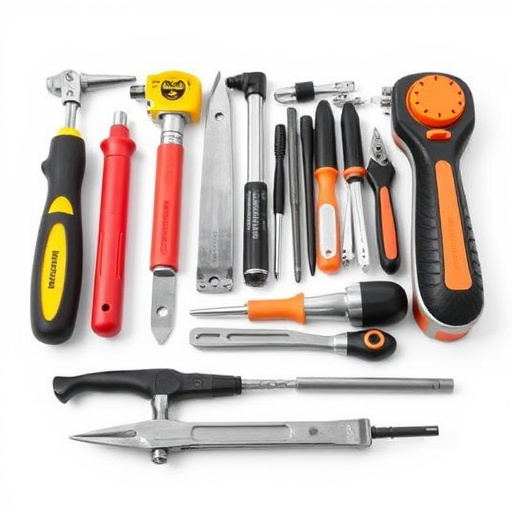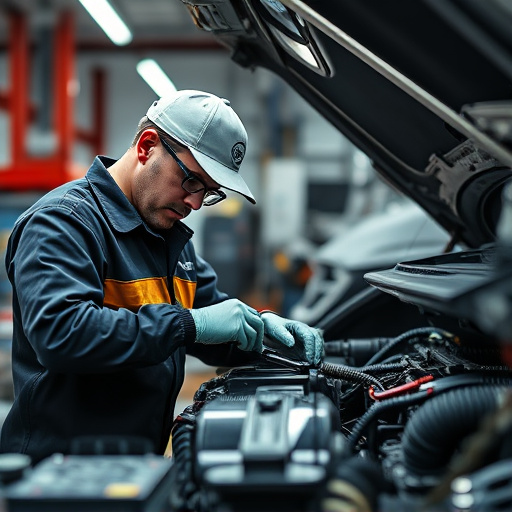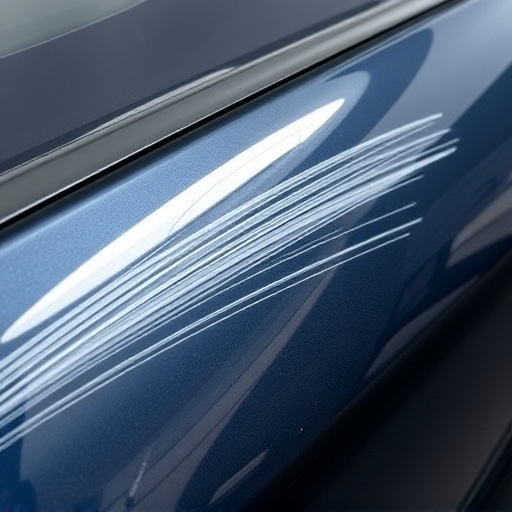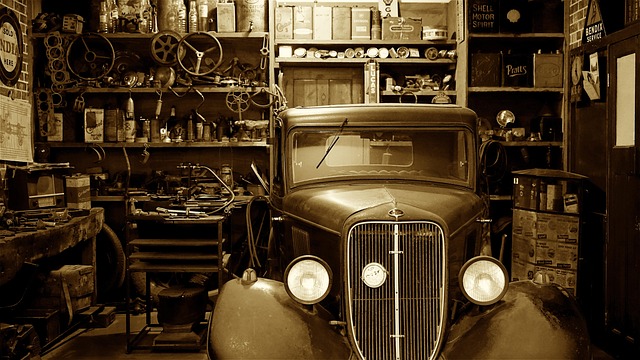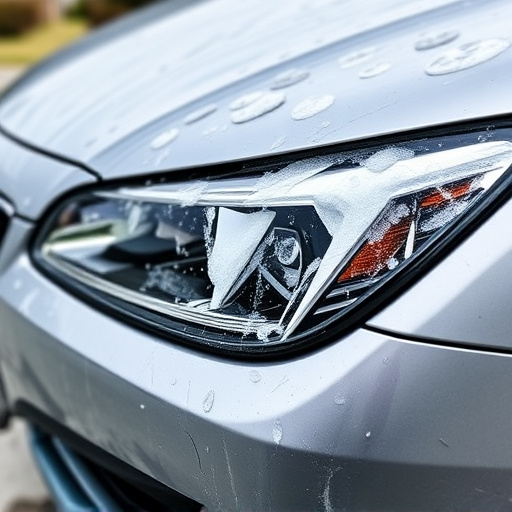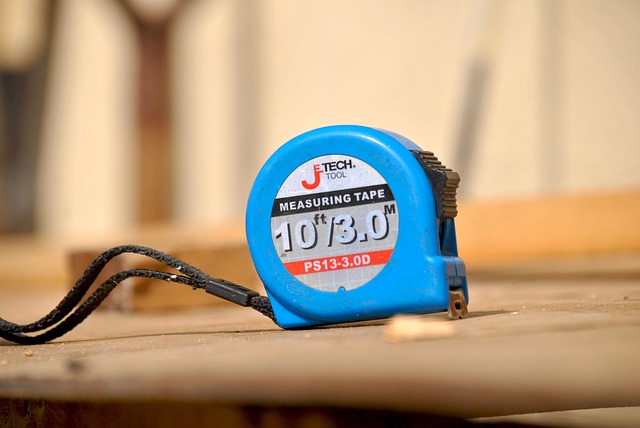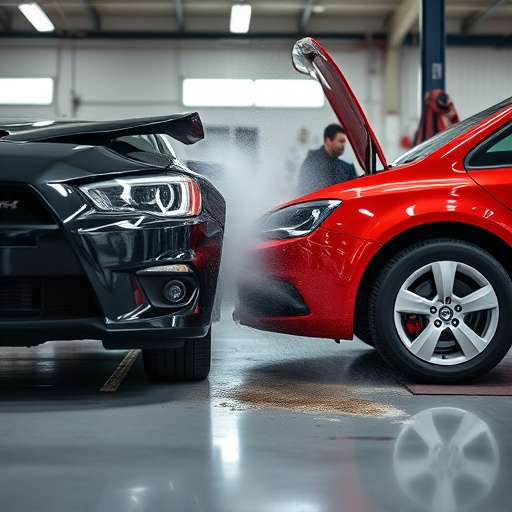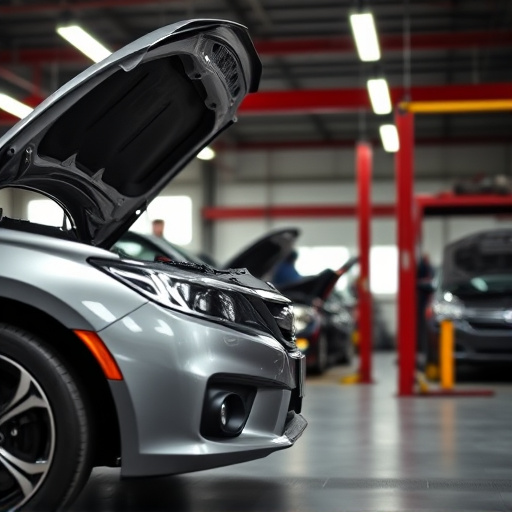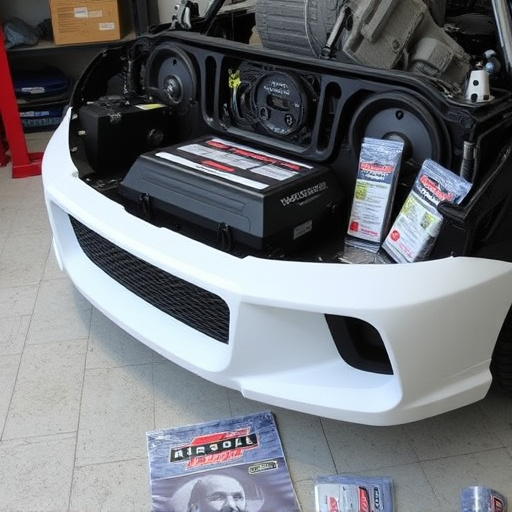Auto body repair shops can reduce their environmental impact and create safer workspaces by adopting eco-friendly materials like water-based paints with low VOCs, biodegradable options, and recycled content. Efficient waste management strategies, including recycling programs for materials like metal, plastic, and glass, along with proper disposal of hazardous substances, further minimize their footprint. Modern practices like LED lighting, water-based paints, eco-friendly cleaning solutions, and advanced ventilation systems help shops meet regulations, appeal to environmentally conscious customers, and differentiate themselves in the luxury vehicle repair market.
“Discover how leading auto body repair shops are transforming their practices to embrace eco-friendly solutions. From selecting sustainable materials and paints to minimizing waste, these strategies not only benefit the environment but also enhance efficiency. Learn about energy-efficient operations that reduce costs and carbon footprints. Explore practical tips for your auto body repair shop, ensuring a greener future while delivering top-quality vehicle restoration.”
- Using Eco-Friendly Materials and Paints
- Efficient Waste Management Strategies
- Energy-Efficient Shop Operations and Practices
Using Eco-Friendly Materials and Paints
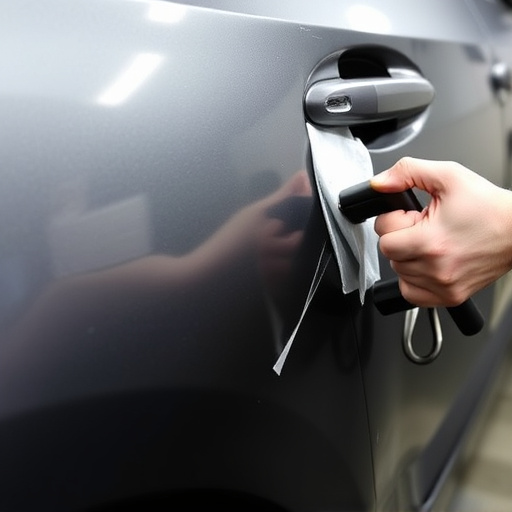
Auto body repair shops can significantly reduce their environmental impact by adopting eco-friendly materials and paints. One effective strategy is to transition from traditional, toxic chemicals to water-based or low-VOC (volatile organic compound) alternatives. These options not only minimize air pollution but also promote a safer working environment for technicians. Many modern auto body shop supplies now offer sustainable options, such as biodegradable and recycled content materials, reducing waste and conserving natural resources.
Additionally, using eco-friendly paints can further enhance the green credentials of an auto body repair shop. These paints are formulated to be less harmful to both human health and the environment, often containing fewer toxic chemicals and lower levels of volatile organic compounds (VOCs). By choosing sustainable materials and finishes, auto body shops can cater to environmentally conscious customers while also contributing to a cleaner, healthier planet, setting them apart in the luxury vehicle repair market.
Efficient Waste Management Strategies
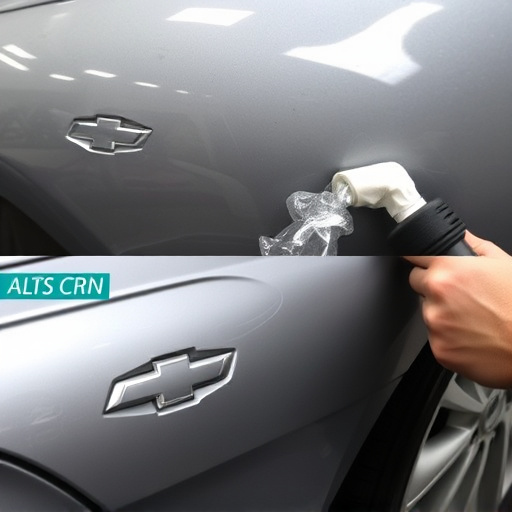
An eco-friendly auto body repair shop should prioritize efficient waste management strategies to minimize its environmental footprint. One effective approach is implementing a comprehensive recycling program. This involves sorting and categorizing waste materials, such as metal, plastic, and glass, for reuse or recycling. For instance, old car parts and scrap metal can be recycled into new products, reducing the demand for virgin resources. Additionally, proper disposal methods should be adopted for hazardous substances like fluids and batteries to prevent pollution.
These practices extend beyond vehicle bodywork; tire services and auto glass replacement also contribute to efficient waste management. Used tires can be recycled or repurposed for various applications, such as playground surfaces or road construction. Similarly, shattered auto glass can be crushed and processed to create new materials, closing the loop on resource utilization. By integrating these sustainable practices, an auto body repair shop not only reduces its environmental impact but also sets a positive example for the industry.
Energy-Efficient Shop Operations and Practices
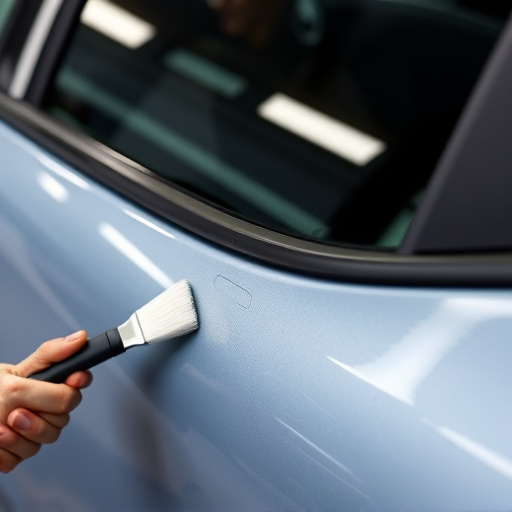
In recent years, eco-friendliness has become a priority for many industries, and the auto body repair shop sector is no exception. Energy-efficient operations are not only beneficial for the environment but also for the bottom line of these businesses. By implementing simple changes, an auto body repair shop can significantly reduce its carbon footprint. For instance, switching to LED lighting not only lowers energy consumption but also lasts longer, reducing replacement costs and waste.
Additionally, adopting practices like using water-based paints and eco-friendly cleaning solutions minimizes the release of harmful chemicals into the atmosphere. Many modern collision centers have also invested in advanced ventilation systems that capture and recycle fumes from auto glass replacement and bodywork processes, further contributing to a healthier working environment and less environmental impact. These sustainable practices not only ensure compliance with environmental regulations but also position the shop as an eco-conscious business, appealing to environmentally aware customers.
An eco-conscious auto body repair shop integrates sustainable practices throughout its operations. By utilizing eco-friendly materials, implementing efficient waste management strategies, and adopting energy-efficient shop operations, these businesses minimize their environmental impact while delivering quality services. Adopting such practices not only benefits the planet but also positions auto body repair shops as responsible stewards in their communities.
